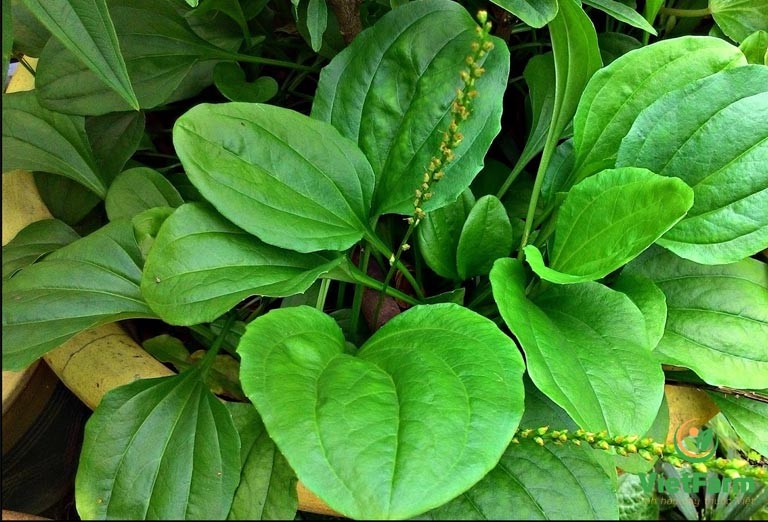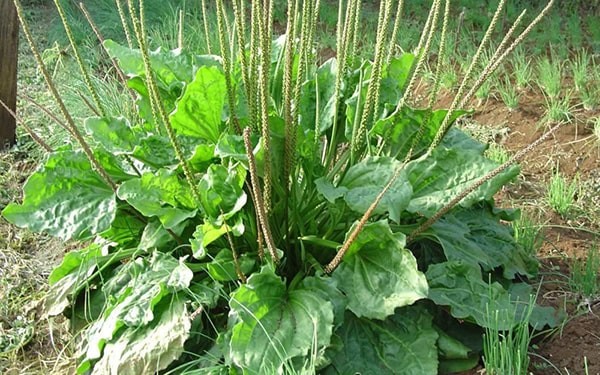Broadleaf plantain (Plantago major) is often celebrated as a “miracle plant” in traditional medicine due to its wide range of applications. While some claims about its benefits are exaggerated, scientific research and historical use highlight its genuine potential as a complementary remedy for certain conditions. Here’s an updated and fact-checked perspective on its uses and benefits.
Historical Uses of Broadleaf Plantain

Broadleaf plantain has been a staple in traditional medicine for centuries. Ancient Greeks and Romans valued it for its wound-healing properties, while Native Americans used it to soothe skin irritations and insect bites. These historical practices laid the foundation for its continued use in modern herbal medicine.
Botanical Characteristics of Broadleaf Plantain
Plantago major is a hardy, perennial herb with broad, oval leaves that grow in a rosette pattern. The plant is common in temperate regions and thrives in diverse environments such as lawns, gardens, and roadsides. Its flowers are small and grow on slender spikes, making it easy to identify.
Key Nutritional and Medicinal Properties
Broadleaf plantain contains bioactive compounds that contribute to its medicinal value:
- Anti-inflammatory and Antimicrobial Effects: The plant’s flavonoids and tannins can help reduce inflammation and fight off mild infections.
- Rich in Nutrients: It provides modest amounts of vitamins A, C, and K, as well as minerals like calcium and iron. These nutrients support general health but should not replace primary dietary sources.
Uses and Applications
1. Topical Applications
- Wound Healing: Fresh leaves can be used as a poultice to promote healing of minor cuts and abrasions.
- Skin Soothing: The plant may reduce irritation from insect bites or mild rashes.
2. Internal Use
- Respiratory Support: Plantain tea has been traditionally used for soothing mild coughs or throat irritation, though scientific evidence is limited.
- Digestive Health: Its anti-inflammatory properties may help with minor digestive discomfort, such as diarrhea or gastritis.
Scientific Backing
Recent studies suggest that Plantago major extracts may possess:
- Wound-Healing Properties: Evidence shows it can help accelerate wound closure and reduce infection risk.
- Anti-Inflammatory Effects: Its compounds may alleviate mild inflammation, but further research is needed for broader claims.
While these findings validate some traditional uses, it’s essential to approach its benefits as complementary rather than curative.
Precautions and Side Effects

- Allergic Reactions: Some individuals may experience skin irritation or allergies. A patch test is recommended before use.
- Consultation Required: Pregnant or breastfeeding women should consult a healthcare provider before using plantain.
- Not a Replacement for Medical Treatment: While plantain offers supportive benefits, it should not replace professional medical care for serious conditions.
Incorporating Broadleaf Plantain
For topical use, crush fresh leaves into a poultice and apply directly to the skin. To make tea, steep dried leaves in hot water for 5–10 minutes. Always use plantain preparations in moderation and under guidance from a healthcare professional.
Conclusion: A Time-Tested Herbal Ally
Broadleaf plantain (Plantago major) holds a well-deserved place in traditional medicine due to its soothing and anti-inflammatory properties. While it is not a miracle cure, its historical uses and emerging scientific support highlight its value as a natural remedy for minor ailments. As research continues, Plantago major remains a testament to the enduring legacy of herbal medicine, offering a simple yet effective way to support health and well-being.
By focusing on safe and evidence-based use, broadleaf plantain can be a beneficial addition to a holistic approach to wellness.

